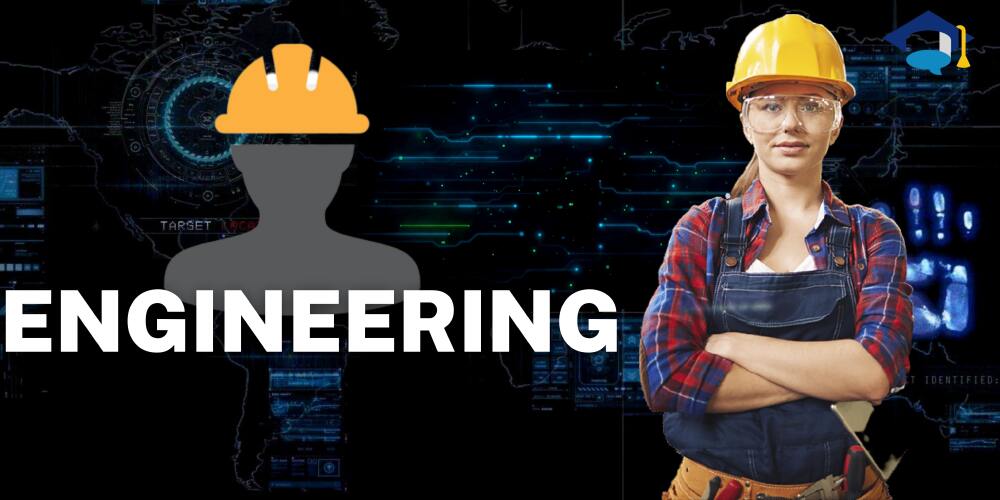Engineering is the use of scientific concepts in the design and construction of equipment, structures, and other items, including bridges, tunnels, roads, cars, and buildings. There are many more specialised fields within the engineering discipline, each of which places a stronger emphasis on particular areas of applied mathematics, applied science, and application types.
In India, engineering is the most well-known and popular profession. Millions of alternatives await the thousands of students who graduate from a school each year and enter the world of new opportunities. If a person wants to pursue a career in engineering, the stream itself offers a variety of courses, including B.E./B.Tech., diploma, and combined engineering courses. Candidates with undergraduate engineering degrees can study in M.E./M.Tech. courses. Many times, students are unable to learn about all the courses that are available to them due to the range of courses.
The engineering field consisted of four pillars of our education system. These four pillars are Engineering, Mathematics, Science, and Technology. In engineering courses, you learn how to cope with real-world problems with the use of concepts involved in science and mathematics. The engineering word gets originated from the basic Latin word ‘Ingenium’ and ‘ingenaire. The meaning of these words is cleverness and to devise. This field of engineering is completely based on logic, creativity, and technical learning skills. In engineering, you will learn how to design, develop, evaluate, test and make new things.
From giant things like bridges to small things like cell membranes are all inventions of engineers. An engineering course involves planning, processing and at last, manufacturing tested things to launch in the market. Thus, all these techniques help students to learn all basic skills efficiently. There are various engineering courses taught in multiple of top-institutes. Some of the courses are Computer Science Engineering, Software Engineering, Electronics and Communication Engineering, Electrical Engineering, Mechanical Engineering, Civil Engineering, Industrial Engineering, etc.
Types of Engineering Courses
There are various types of engineering courses in multiple areas. Each category is divided on the basis of different areas in which engineers are operating. For example, engineers working on software are software engineers, engineers working on oil and gas categories to petroleum engineers, and engineers working on agriculture-related stuff categories into agricultural engineers.
Moreover, many of the old engineering branches like civil, mechanical, and other fields also came with different specializations into it. The engineering branches like corrosion, aerospace, automotive, textiles, geological, material science, nuclear science, and many more are among the top preferable branches in engineering.
Let us discuss these engineering branches in detail now-
Computer Science Engineering
In Computer Science Engineering, engineers become experts in handling computer networks, software, systems as well as hardware. In collaboration with other branches of engineering such as electrical, it teaches students wide-perspective knowledge in software as well as hardware.
Electronics and Communication Engineering
Electronics and Communication engineering involves testing and developing electronic circuits and communication devices such as transmitters, ICs, and receivers. Engineers working in this domain apply the principle of digital and analog communication. This field works in microprocessors, satellite communication, and many more electronic devices.
Electrical Engineering
Electrical Engineering involves the process of designing, testing, constructing, and manufacturing products involved in the electrical domain. All kinds of inspection and monitoring are also done by electrical engineers in the process. The devices that electrical engineers handle vary from the smallest microchips to the largest circuit of transmission lines.
Civil Engineering
Civil Engineering involves the process of designing, testing, constructing, and manufacturing products involved in the construction domain. All kinds of inspection and monitoring are also done by civil engineers in the process. Large projects like railway line construction, road construction, tunnel as well as dam construction all come under civil engineers.
Civil engineers are employed in both sectors, public as well as private. Moreover, civil engineers also work in collaboration with other domains like environmental engineering and structural engineering, etc.
Mechanical Engineering
Mechanical Engineering involves the process of designing, testing, constructing, and manufacturing products involved in the mechanical domain. All kinds of inspection and monitoring are also done by mechanical engineers in the process. It involves handling various components such as engines, vehicles, weapons, turbines, and many more such tools. In this engineering discipline, the management of control systems and instruments also plays significant importance in measuring the performance or status of machinery things.
Aerospace Engineering
It is one of the specialized branches of electrical and mechanical engineering. Aerospace Engineering involves the process of designing, testing, constructing, and manufacturing products involved in the aerospace domain. All kinds of inspection and monitoring are also done by aerospace engineers in the process. All kinds of aircraft and spacecraft testing are performed by aerospace engineers. In this, you will learn vehicle aerodynamics, navigation systems, and much more expertise on this.
Nuclear Engineering
In nuclear engineering, nuclear engineers perform all kinds of designing, construction, manufacturing, operation, and testing of respective instruments. All this is done to achieve the production of nuclear power. Apart from nuclear power plants, nuclear engineers play a vital role in monitoring all activities apart from production also to safeguard its people from any hazards.
Chemical Engineering
Chemical engineers work with the principle of physics, chemistry, biology, and engineering for the purpose of designing equipment, processing raw ores, and materials, etc. All kinds of chemical processes are implemented in this branch. For commercial purposes, chemical engineers carry out processes ranging from refining to fermentation, etc.
Biomedical Engineering
Biomedical engineers involve in designing equipment, systems, and devices that are required in the medicine and healthcare sectors. This special branch of engineering works with doctors, medical specialists, and researchers to meet the need of healthcare industries.
Industrial Engineering
Industrial engineers work in the field of designing equipment and systems for the purpose of manufacturing different industrial applications. In this discipline, all industrial equipment is launched by these industrial engineers which makes our life much easy.
Environmental Engineering
In environmental engineering, engineers are involved in the process of preventing, removing, and eliminating different kinds of pollution that are affecting our environment. In the first step, these engineers identify the pollution level along with all kinds of sources of pollution. Afterward, they also make a solution for the cleaning of particular pollution. Most importantly, these engineers work in regulations with all kinds of government rules.
Geotechnical Engineering
Geotechnical Engineering is the branch of engineering that comes under civil engineering. It focuses on behavior and changes in the earth’s materials. In this field, all kinds of principles involved in soil and rocks are taken care into this field of engineering. Geological engineering also applies hydrology, geophysics, and geology to implementing it in real life.
Marine Engineering
Marine engineering involves all the work done nearby oceans. This branch involves designing ships, oil rings, harbours, plants, and many more. This special branch of engineering also combines other branches like mechanical, civil, electrical, and computer in it.
Top 10 Engineering Colleges in India
Every year, the MHRD publishes the list of top engineering colleges in India according to the (NIRF) – National Institutional Ranking Framework (Ministry of Human Resource Development). The list includes all different kinds of engineering educational institutions, including IITs and private engineering colleges. The ranking list of institutes from various streams is created by the “Expert Committee,” which is selected by the MHRD core committee. Learning environments, faculty profiles, terms and circumstances for candidates who are economically challenged, and a number of other elements are among the criteria that determine the ranking.
Rank 1- IIT Madras– Indian Institute of Technology
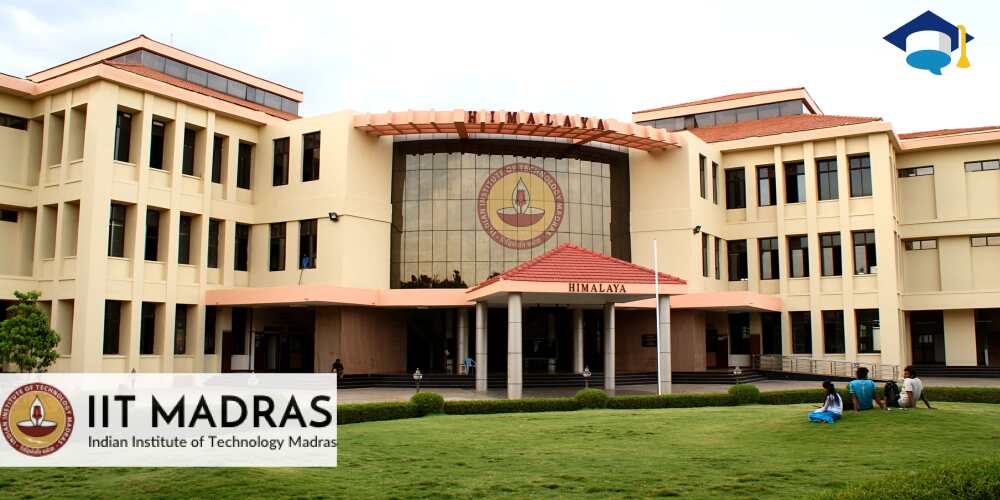
The Indian Institute of Technology Madras (IIT Madras), a public technical institution, is located in Chennai, Tamil Nadu, India. It is acknowledged as an Institute of National Importance and is one of the Indian Institutes of Technology (IITs). With technical and financial assistance from the former West German government, it was the third IIT to be established by the Indian government. It was founded in 1959. IIT Madras has been ranked as India’s top engineering institution by the National Institutional Ranking Framework since its launch in 2016.The campus of IIT Madras, a residential university, is 2.5 square kilometres (0.97 sq mi) in size and was once a part of the nearby Guindy National Park. 10,000 students, about 600 academic members, and 1,250 administrative and support employees work at the institute.
NIRF Parameters-
|
TLR |
RPC |
GO |
OI |
PERC |
Total |
|
94.62 |
97.66 |
80.42 |
62.85 |
100.00 |
90.04 |
Rank 2- IIT Delhi– Indian Institute of Technology

In New Delhi, India, there is a public technology institute called the Indian Institute of Technology Delhi (IIT Delhi). It is one of the 23 Indian Institutes of Technology established to serve as Centers of Excellence for science, engineering, and technology education, research, and development in India.
Established in 1961, it was publicly opened by Prof. Humayun Kabir, Minister of Scientific Research & Cultural Affairs, in August of that same year. In 1961, the first admissions were made. The Jawaharlal Nehru University Complex, the National Council of Educational Research and Training, the Sri Aurobindo Marg, the New Ring Road, and the Qutub Minar and Hauz Khas landmarks all encircle the modern campus, which is currently 320 acres (or 1.3 km2) in size.
The institute was then given the status of a full university with the authority to establish its academic policy, hold its exams, and confer its degrees after being declared an Institute of National Importance by the Institutes of Technology Amendment Act, 1963.
NIRF Parameters-
|
TLR |
RPC |
GO |
OI |
PERC |
Total |
|
86.95 |
96.00 |
83.43 |
68.56 |
96.92 |
88.12 |
Rank 3- IIT Bombay– Indian Institute of Technology

In Powai, Mumbai, Maharashtra, India, the Indian Institute of Technology Bombay (IIT Bombay) is a public research university and technological institute. It is regarded as one of the top engineering universities in India and is the top-ranked Indian university in the 2022 QS World University Rankings. In the 2022 NIRF engineering and overall rankings, it is rated third.
In 1958, IIT Bombay was established. The IITs were designated as Institutes of National Importance by the Parliament in 1961. In order to chart the course for the growth of technical education in the nation, a committee appointed by the Government of India in 1946 suggested the creation of four higher colleges of technology. The first 100 students were admitted in 1958 after planning started in 1957.
The institute has grown physically since it was founded in Powai to include more than 584 significant structures with a total area of more than 2.2 square kilometres.
NIRF Parameters-
|
TLR |
RPC |
GO |
OI |
PERC |
Total |
|
87.53 |
90.82 |
79.18 |
57.36 |
88.70 |
83.96 |
Rank 4- IIT Kanpur– Indian Institute of Technology
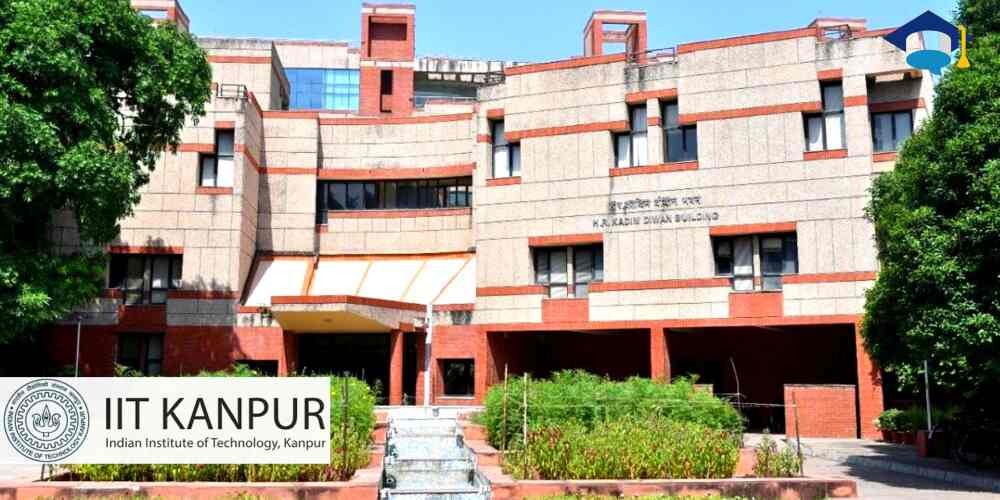
Kanpur, Uttar Pradesh, India is home to the Indian Institute of Technical Kanpur (IIT Kanpur), a public technology institute. According to the Institutes of Technology Act, the Indian government designated it as an Institute of National Importance.
In 1959, the institute was founded. The Kanpur Indo-American Programme helped a group of nine US research universities aid the institute in its creation as one of the first Indian Institutes of Technology (KIAP).
NIRF Parameters-
|
TLR |
RPC |
GO |
OI |
PERC |
Total |
|
87.95 |
79.98 |
89.71 |
59.47 |
83.01 |
82.56 |
Rank 5- IIT Kharagpur– Indian Institute of Technology

In Kharagpur, West Bengal, India, the Indian Institute of Technical Kharagpur (IIT Kharagpur) is a public technology institute that was founded by the Indian government. The institute was the first IIT to open its doors in 1951 and is recognised as an Institute of National Importance. The Government of India granted it the title of Institute of Eminence in 2019.
After India gained its independence in 1947, the institute was first founded to provide engineering training. But as time went on, the institute’s academic offerings expanded to include business, law, architecture, humanities, etc. There are around 22,000 people living on the 8.7 square kilometre (2,100 acre) campus of IIT Kharagpur.
NIRF Parameters-
|
TLR |
RPC |
GO |
OI |
PERC |
Total |
|
79.21 |
84.61 |
80.91 |
53.09 |
82.63 |
78.89 |
Rank 6- IIT Roorkee– Indian Institute of Technology
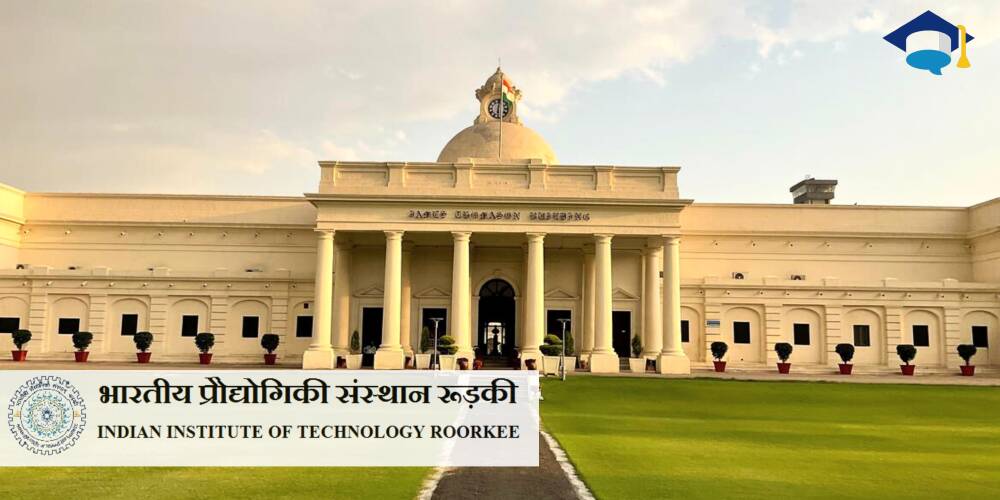
MIT, the Indian Institute of Technology Technical university Roorkee, often known as IIT Roorkee, is situated in Roorkee, Uttarakhand, India. It was founded as the College of Civil Engineering in British India in 1847 by James Thomason, the Lieutenant-Governor of the North-Western Provinces, with the intention of training people and engineers who would operate on the Ganges Canal construction.
The oldest engineering school in India is there. After the canal was finished and Thomason passed away in 1854, Proby Cautley, the canal’s designer and planner, changed the institution’s name to the Thomason College of Civil Engineering. In 1949, it was renamed University of Roorkee, and again in 2001, it was renamed IIT Roorkee. The university includes 22 academic departments that offer degrees in engineering, applied sciences, humanities and social sciences, and management, with a focus on education and research in science and technology.
NIRF Parameters-
|
TLR |
RPC |
GO |
OI |
PERC |
Total |
|
75.98 |
78.10 |
90.12 |
63.09 |
61.36 |
76.70 |
Rank 7- IIT Guwahati– Indian Institute of Technology
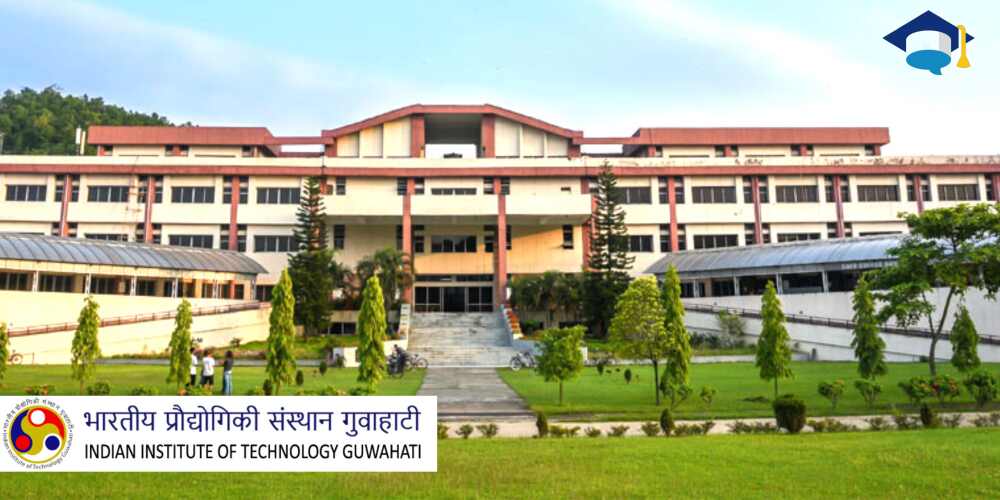
The Government of India founded the public technical institution known as the Indian Institute of Technology Guwahati (IIT Guwahati), which is situated in the Amingaon neighbourhood of North Guwahati City in the Indian state of Assam. It is India’s sixth Indian Institute of Technology to be founded there. The Indian government formally recognises IIT Guwahati as an Institute of National Importance. According to the NIRF India Rankings 2021, IIT Guwahati is placed eighth overall and seventh in the engineering category.
NIRF Parameters-
|
TLR |
RPC |
GO |
OI |
PERC |
Total |
|
75.89 |
72.89 |
84.64 |
56.90 |
57.15 |
72.98 |
Rank 8- NIT Trichy– National Institute of Technology

NIT Tiruchirappalli, sometimes known as NIT Trichy, is a public technical and research university in Tamil Nadu, India, not far from the city of Tiruchirappalli. The governments of India and Tamil Nadu formed it in 1964 as the Regional Engineering College Tiruchirappalli, which was affiliated with the University of Madras. With the support of the University Grants Commission (UGC), All India Council for Technical Education (AICTE), and the Government of India, the college received Deemed University status in 2003 and changed its name to National Institute of Technology Tiruchirappalli.
The institute is one of the National Institutes of Technology (NITs) system, a collection of leading Indian technical institutes governed by the Council of NITSER, and has been designated as an Institute of National Importance by the Government of India under the National Institutes of Technology, Science Education and Research (NITSER) Act, 2007.
The Ministry of Education (MoE), the Government of India, provides funding for NIT Trichy, which only focuses on engineering, management, science, technology, and architecture. Through its 17 academic departments, the institute provides 10 bachelor’s, 40 master’s, and 17 doctoral programmes, and it grants more than 1900 degrees each year. For seven years in a succession, from 2016 to 2022, the National Institutional Ranking Framework (NIRF) placed the institute #1 among the NITs. Additionally, the institute was ranked 23 overall and 5 for architecture, 8 for engineering, and 3 for management by NIRF in 2022. The Confederation of Indian Industry named NIT Trichy the “Best Industry-linked Centrally Funded Technical Institution in India” in 2015, while the Federation of Indian Chambers of Commerce and Industry named it “University of the Year” in 2017.
NIRF Parameters-
|
TLR |
RPC |
GO |
OI |
PERC |
Total |
|
76.39 |
58.43 |
79.16 |
64.49 |
64.38 |
69.17 |
Rank 9- IIT Hyderabad– Indian Institute of Technology
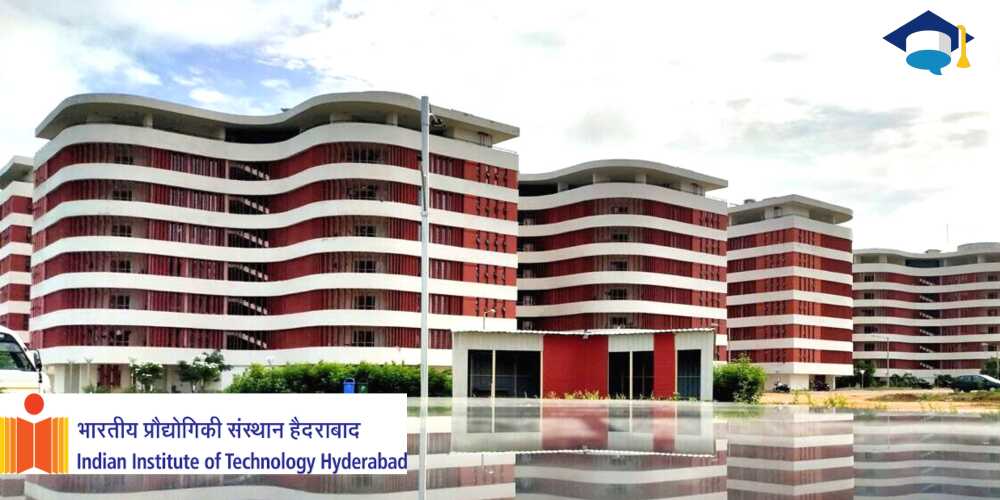
The Telangana state of India’s Indian Institute of Technology, Hyderabad (also known as IITH or IIT Hyderabad) is a public technical research university. IIT Hyderabad is an Institute of Public Concern, much like all other Indian Institutes of Technology (IITs).
As one of the eight new Indian Institutes of Technology, IIT Hyderabad was established in 2008. As of January 15, 2022, it had 255 full-time faculty members and 3,903 students (1,553 undergraduate, 1,221 master’s, and 1,129 PhD students).
NIRF Parameters-
|
TLR |
RPC |
GO |
OI |
PERC |
Total |
|
80.32 |
59.89 |
72.39 |
54.85 |
59.96 |
68.03 |
Rank 10- NIT Surathkal– National Institute of Technology
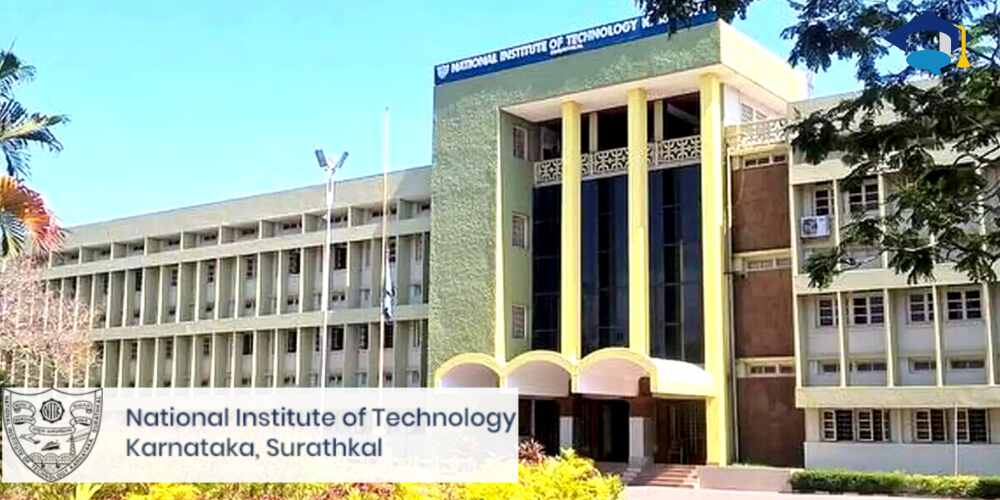
The National Institute of Technology Karnataka (NITK), popularly known as NITK Surathkal and formerly known as the Karnataka Regional Engineering College, is a public technical institution situated in Surathkal, Mangalore (KREC). It was founded in 1960 under the name KREC and is currently one of India’s 31 National Institutes of Technology, in addition to being recognised as an Institute of National Importance by the Indian government. The campus is located close to the Arabian Sea in a suburban neighbourhood. National Highway 66 traverses the campus and is the primary access route.
NIRF Parameters-
|
TLR |
RPC |
GO |
OI |
PERC |
Total |
|
72.87 |
56.42 |
77.69 |
63.89 |
53.24 |
66.04 |
Importance of Engineering
From thousands of years back, engineering is one of the basic parts of humans. With the growth of knowledge in science and mathematics, our expertise in the field of engineering has grown too far.
In today’s world, engineers are using top-notch advanced technologies. Along with the most advanced principles in science. As a result, they offer an innovative solution to tackle real-world challenges.
There are various advantages to getting enrolled in BTech courses for four years. All those who are interested in doing inventions along with having the curiosity to use different instruments and software can use their BTech course to make use of their time and opportunity. BTech provides them with the right career opportunity for framing their future as they wish. According to your interest, you can choose a specialization in BTech, such as Computer Science, Electrical and Electronics, Electrical, Mechanical, Civil, Chemical, Marine, etc.
Conclusion
Everything around us is linked with engineering principles. Many people take engineering for granted. But if you look deep, it’s because of engineering you are able to make coffee, bathe in warm water, make travel thousands of miles within hours, etc. It made a large distance communication possible. How you are able to communicate now? It’s because of engineering.

